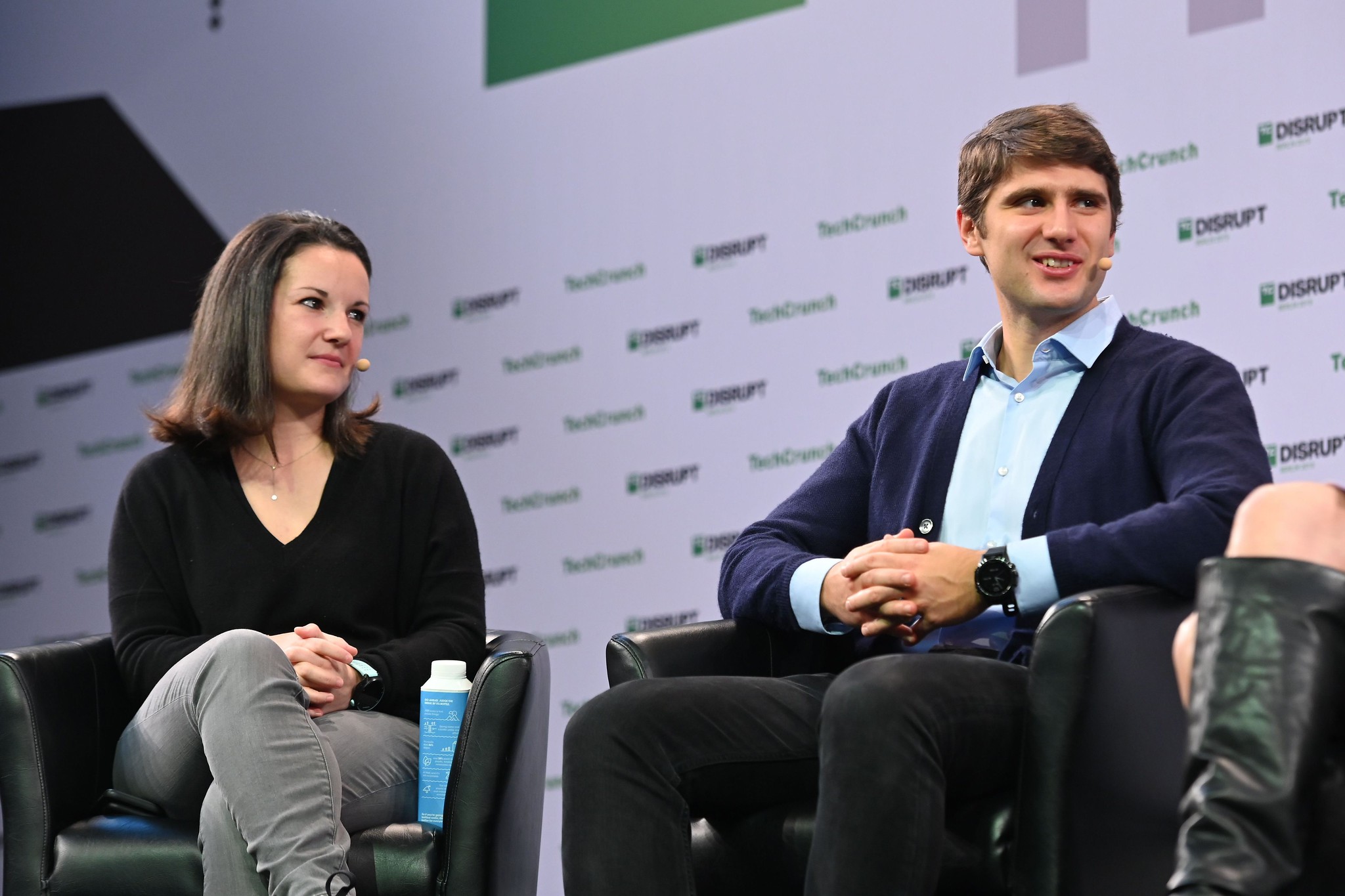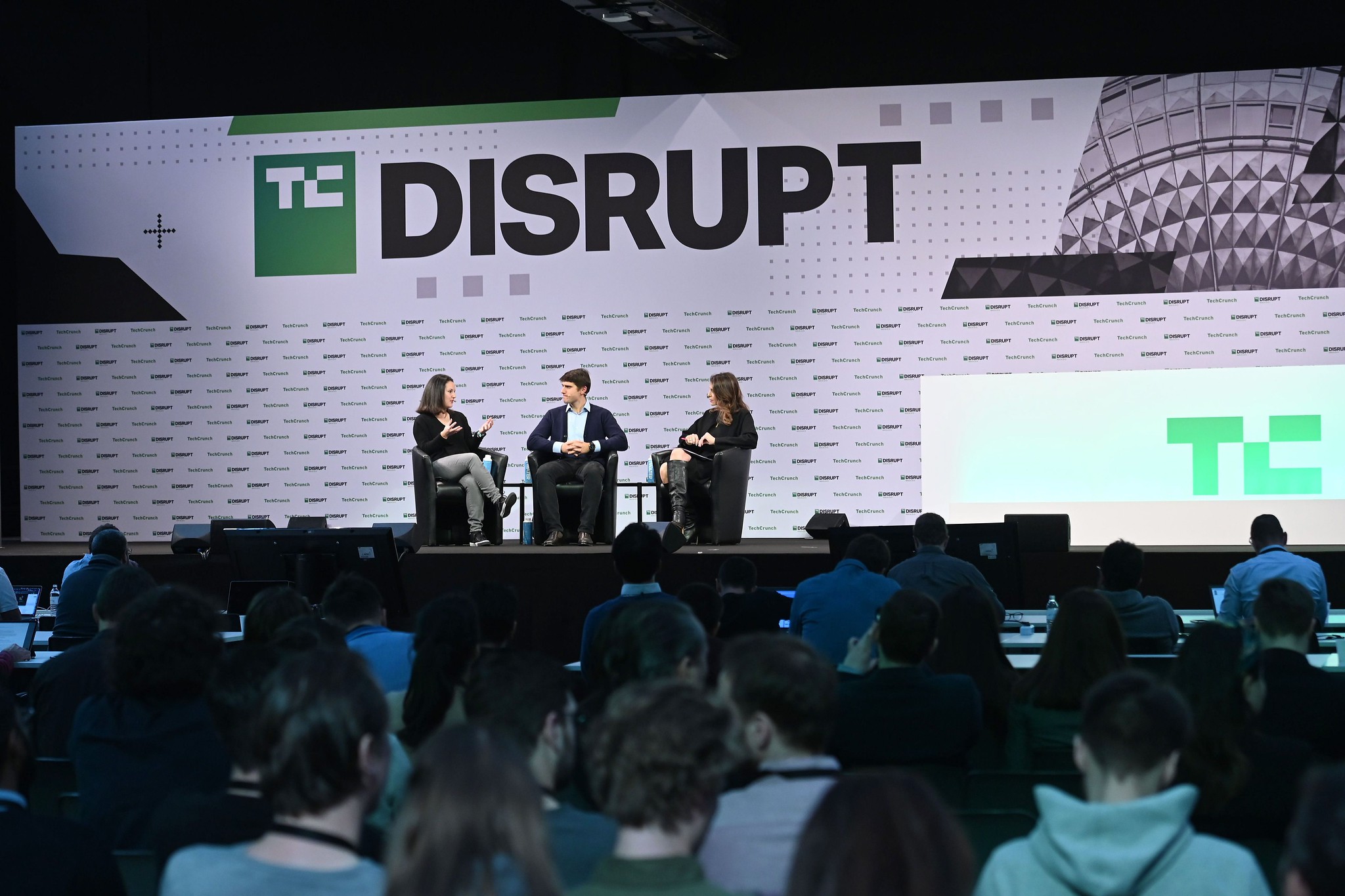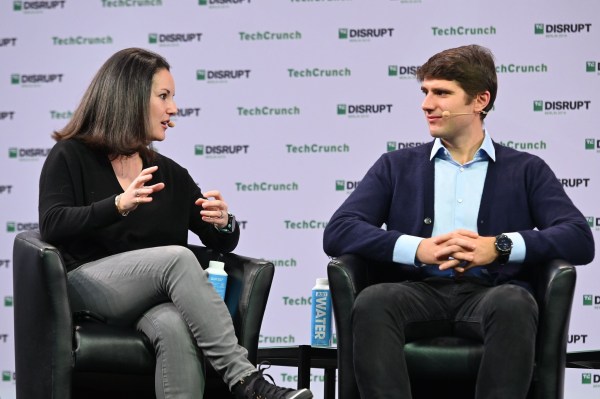If you haven’t noticed, Europe’s startup scene is in full bloom, with more than $30 billion deployed in startups across the continent over the last 12 months and more than 20 countries now home to a so-called unicorn company.
Investors around the globe are jumping into the pool, too. Consider that the Ontario Municipal Employees Retirement System (OMERS) is currently investing a €300 million fund in Europe. Abu Dhabi’s state investor, Mubadala, last year announced it was launching a $400 million fund to back European startups. And that’s saying nothing of the many Europe-based venture investors who are either raising new funds or recently closed them.
Atomico, for example, one of the continent’s biggest early-stage firms, closed its most recent fund with $765 million in 2017 and is reportedly out fundraising again. Others of all different sizes have recently announced new vehicles, including Balderton Capital, which last month closed a new $400 million fund; United Ventures, a 6.5-year-old, Milan-based early-stage venture capital firm that last week closed its second fund with €120 million in capital commitments (nearly double the €70 million it raised for its debut fund); MiddleGame Ventures, a 1.5-year-old, Luxembourg-based fintech-focused investment firm that recently held a first close on a fund that’s targeting €150 million altogether; Northzone, a 23-year-old, London-based venture capital firm that closed on $500 million in capital commitments for its ninth fund (its largest to date); Ada Ventures, a new London-based seed-stage venture firm that just closed its debut fund with $34 million; and Dawn Capital, a nearly 13-year-old, U.K.-based early-stage venture firm that in summer raised $125 million for an opportunities-type fund.
To find out more about what’s happening on the ground, we sat down at Disrupt Berlin earlier this month with two London-based investors — Carolina Brochado, who late last year left Atomico to join SoftBank’s Vision Fund, and Andrei Brasoveanu of Accel — to discuss where the money is coming from, which European cities are becoming more interesting to both of them, and some of the challenges they face in covering so many different regions.
We also talked specifically with Brochado about whether SoftBank is changing up its tactics in light of some bets that aren’t panning out as intended — and whether she has any qualms about the outfit’s biggest investor. Our conversation, edited lightly for length and clarity, follows.
TC: We’re all meeting for the first time, and I thought we could do everyone here a service who wants to understand both of you better by talking a little bit about who you are and what you focus on. Do you want to start Carolina? I know you studied in the U.S…
CB: Yes, so I’m originally from Brazil. I moved to the U.S. for university, spent over 10 years in the U.S., [and I] have worked in in large cap private equity, have worked at a pre launch, launch, [then failed] startup, and then have spent a lot of my time in Europe, which has been seven years now, at an earlier stage VC firm called Atomico . . . and for the last year, I’ve been at SoftBank Vision Fund, investing at the growth stage.
AB: I’ve been with Accel for six years. I’m originally from Romania and spent 10 years in the states like Carolina, studying and working in New York in high frequency trading. At Accel, I’ve been focused most of my time on enterprise software and financial services and I’ve been very excited to back European founders from London all the way to Bucharest. Accel is one of the few Valley-based venture firms with on-the-tground presence in Europe. We’ve been here for 20 years, and we really believe in having a local approach to investing.
TC: Carolina, you switched from Atomico to SoftBank this year. Why?
CB: There’s a lot of push and pull with these sort of things. Europe is such an incredibly exciting place right now, and to be totally honest, back [when I moved here] in 2013, I didn’t totally see it, but over the years, you realize how many incredible entrepreneurs [are here], how many incredible teams, and the opportunity that lies ahead. And firms like Accel and Atomico were paving the path of the capital structure in Europe, which is actually very young; maybe the past 15 years, there’s been VC in Europe, and now you starting to see the fruits of that and the exits.
So for me, part of it was while there are great funds at the early stage, there’s still a lot of underfunding at that later stage, so I was really excited about doing growth in Europe and putting significant amounts of capital behind founders who want to go for the really big outcomes.
TC: You now have an insider’s view of these two very important firms. What are some of the biggest differences between Atomico and SoftBank, aside from the different stages at which they invest — how do maybe the processes differ?
CB: There’s obviously a difference in size — Atomico was 70 people and SoftBank is a 500-person organization. There is an interesting founder-led approach to both organizations. They are both very mission- driven by founders who want to change the world and by founders who want to be the best at what they do, which is really exciting.
One of the key differences at SoftBank is that it’s really global firm [with] offices everywhere. We have offices in the U.S. We have offices in Asia. We have offices in Europe. For me, it has been a really interesting platform to see what other great founders are doing in other places of the world.
And then, just because of the sheer size of the organization, you have a group of 50-plus operating partners who may have really deep areas of domain expertise like talent but who are also helping our companies do business development, and who can look at our ecosystem — which today is over 85 portfolio companies — and make connections, and win business and actually win profitability for companies across and within that ecosystem.
TC: You’re both [in Berlin right now] from London. Andrei, do you run into each other in deals, or are your worlds vastly different?
AB: I would say we have quite different focus areas, we’re very much early-stage focused as our sweet spot [though] some of our companies, when they get to that mature stage, may benefit from working with SoftBank.
CB: We try to stay very close to the great companies at Accel, so they’ll nudge us [when it’s the right time].
TC: Who are you seeing coming into deals who you might not have when you joined Accel in 2014?
AB: It’s interesting. Since I joined Accel, the quality of investors in Europe has increased dramatically. So we’ve seen quite a few former operators, for example, [meaning] very successful founders who are now starting the starting their own funds. We’ve seen more family offices enter the industry. We’ve seen more U.S. capital in the market. And in general, I think [all] has helped raise the bar in terms of the quality of capital available to founders across Europe. And many of these folks, especially the local players, have been good partners for us.
TC: I understand there’s also more money coming in from China. I’d seen that Mubadala [from United Arab Emirates] is investing $400 million Europe. What about corporates? Corporate VCs have taken over investing in the U.S. Is that also happening here, or to a lesser degree?

BERLIN, GERMANY – DECEMBER 12: Investment Director at SoftBank Vision Fund Carolina Brochado and Partner at Accel Andrei Brasoveanu speak on stage at TechCrunch Disrupt Berlin 2019 at Arena Berlin on December 12, 2019 in Berlin, Germany. (Photo by Noam Galai/Getty Images for TechCrunch)
CB: Absolutely. It used to be the case that founders had to take flights and go see VCs; they had to go to the Valley or they had to go to Asia. And now, I hear stories about VCs chartering planes to go to remote areas in Europe to meet a really exciting company, right. And I think that corporates are very sophisticated in what they do in their areas of domain expertise and are spending a lot of time with companies, and spending it early [in their trajectories], seeing how they develop early on and maybe co-investing and helping them with partnerships and relationships.
TC: And where, other than Berlin, are things kind of bubbling up? Where are you seeing more founders coalescing?
AB: Outside of the obvious ones — like Berlin, Paris Stockholm — many of these companies, especially given the technical universities, pop up from all over the place. We’ve backed amazing companies like UiPath in Bucharest or Celonis in Munich, and we see quite a long tail of really interestinghubs with quality talent where companies emerge from — which also points to why Europe is so hard to cover off the plane. You need a very strong local network and to be here on the ground to find and support these companies early on.
CB: One of the areas where we’ve been spending more time on outside of the obvious places is Eastern Europe. There’s a lot of talent, and there have been big winners already, and you’re starting to see increased activity [and] new business models.
TC: What are you each of you looking for in order to write a check to a startup?
AB: We’re very long-term focused or we’re really love backing original founders folks who have very bold ideas, and we we open our doors as soon as founders are ready to work with us. [In terms of traction or revenue], there’s no-one-size -fits-all formula for successful companies. Many companies we back are pre revenue or even pre product. What we seek is a unique market insight [and] a strong team, but a strong team doesn’t have to be a repeat or very experienced team. We back many teams out of college. [It does have to be] founders with a unique approach to attacking a very attractive market.
CB: We’re looking for teams that have technologies that are disrupting a specific sector. We love large sectors that are undisrupted by technology because we believe that [they can have] a large impact — fintech, logistics, mobility, real estate and so on. We do invest a little bit later at the growth stage and [with] larger quantums of money, so we expect the core engine of the business to be working. We expect there to be proven economics in the most mature market, if it’s a marketplace or part of the business, or [we expect] early lighthouse customers. So there isn’t necessarily a parameter on what revenue needs to be, but you do need to show that the capital you’ll be using [will be for] growth, as opposed to finding product market fit.
TC: SoftBank has had a rough six months or so. It made a big bet on Uber and it looks like it’s overpaid right now. [It looks] like it overpaid for WeWork right now. It parted ways with Wag after investing a lot of money in the company. Your CEO, Masa Son, recently said [of these missteps] that, “There was a problem with my own judgment. That’s something I have to reflect on.”
Is [SoftBank’s] mission going to change [or] the mandate [or] the scope going forward in 2020?

BERLIN, GERMANY – DECEMBER 12: Investment Director at SoftBank Vision Fund Carolina Brochado, Partner at Accel Andrei Brasoveanu and Connie Loizos speak on stage at TechCrunch Disrupt Berlin 2019 at Arena Berlin on December 12, 2019 in Berlin, Germany. (Photo by Noam Galai/Getty Images for TechCrunch)
CB: Look, it’s the question on everybody’s mind, so I’ll try to address it. The mission of investing in great teams, in mission-driven companies that are changing the way people live, will not change.
And I really appreciate the fact that you said “right now” because SoftBank and Masa himself are very long-term thinkers, and hopefully, the message that founders took away from WeWork and the way SoftBank behaved after the IPO didn’t go forward is that we really will work with founders for a long time, and we will hold stock in the public markets, because we believe that this is a 10-, 20-, 100-year vision. And if we believe that a company will change that sector, we will commit to that. And luckily, we have the amounts of capital where we have the ability to do that, so we won’t be fair-weather investors. We’re really there and we have the infrastructure and the capital to support these companies through thick and thin.
TC: Do you want to address the widespread perception that SoftBank might not be able to raise a similar size fund [to its $100 billion debut Vision fund]? You have a lot of resources, but you’ve also deployed a lot of those resources. What happens in 2020?
CB: I can’t really comment on the size of the fund. I think we have a really strong relationship with our LPs. It’s a really close relationship. And they’re also aligned on on the vision of the fund.
On an execution level, there’s going to be a lot of attention now on things like governance and on things like unit economics, which I think is actually really healthy and really positive. And the Vision Fund is two years old. And people sometimes forget that. So I think there’s a lot of learnings. There is definitely going to be a way forward. And the mission will remain the same.
TC: You talked about your LPs. One of these LPs — your [anchor] LP — is Saudi Arabia. There’s been a lot of concern about Saudi Arabia, given the civil war in Yemen, this Washington Post journalist who was murdered. Has the Vision Fund’s relationship with Saudi Arabia changed? Do you have any qualms about deploying money on behalf of Saudi Arabia?
CB: Masa has spoken about this publicly right and about what a terrible tragedy that was and the fact that SoftBank doesn’t condone violence in any way. What SoftBank is trying to do is use capital to bring technology to areas of the world that might not have access to that kind of deep level of technology, until the effect that SoftBank is trying to have with that capital is actually quite positive.
I think that’s maybe is a message that sometimes gets missed. And you know if you meet Masa, he’s a very inspiring guy, and that really is his life mission and that really is the legacy that he wants to leave, even beyond himself.
TC: Andrei, in the U.S., SoftBank is sort of the bull in the china shop, aggravating a lot of investors, driving up valuations in many cases. How is it viewed by Accel?
AB: Broader events definitely shed some more focus on running businesses effectively. I would say whether it’s good or lean times or bad times, we’ve always been very focused on building a long-term sustainable business and helping founders focus on the long-term prize. And I think, certain situations in recent times have helped shed more light and kind of focus on having good operational metrics and a path to profitability long term.
It doesn’t quite change what we do. We’ve always been focused on building something that’s long lasting.
